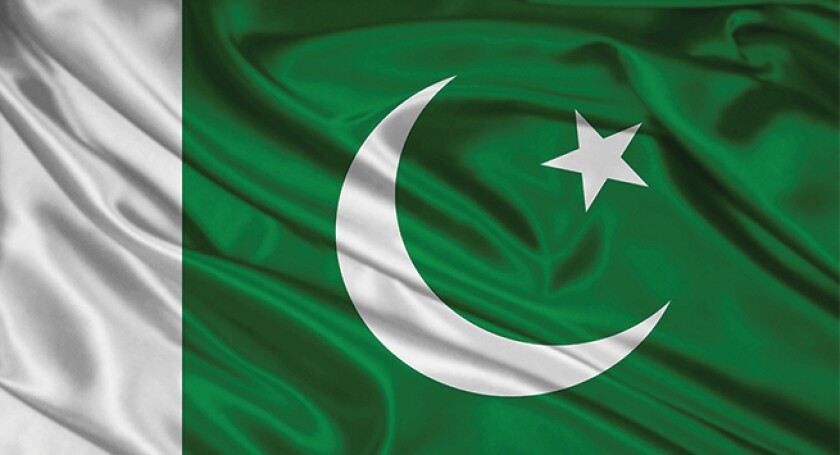Pakistan has one of the most competitive telecom markets in the region, with 4 MNOs competing for around 192mn subscribers. VEON’s business unit Jazz leads the market with 37.3% share, followed by Zong at 24.9%, Telenor at 23.6% and Ufone with 13.3%. All this competition had pushed down ARPUs to just US$1, squeezing MNO revenues.
PTCL, backed by e&, last year announced their acquisition of Telenor Pakistan, which had been planning an exit from the market. The deal is expected to help drive up ARPUs, and there was speculation of either a full or partial tower sale of the combined 14,600 towers.
Pakistan’s antitrust regulator has recently completed its stage one review and found that PTCL would bolster its already strong position in the market and is concerned about rising prices and a dip in service quality, with stage two of the analysis currently underway.
While no sale leasebacks have taken place in Pakistan yet, towercos have established themselves as the partner of choice for operator new-builds and have deployed around 7,000 new sites over the past 5 years.
Data consumption has grown 4X in the last 5 years, and forecasted to growth 10% in the next 5, with 5G expecting to launch at the end of 2025 to 2026. The tower industry is expected to deliver another 10-15,000 tenancies over the next 5 years, with a greater emphasis on colocations over new builds as network coverage matures.
EDOTCO, Engro Enfrashare and Associated Technologies are the three major towercos. EDOTCO has been present in the market since 2014 before acquiring local towerco TowerShare in 2017. Market leader Engro Enfrashare was founded in 2018 as a subsidiary of national conglomerate Engro Corporation. ATL are an infrastructure development company active for over 30 years and now act as a towerco.
Pakistan - telecom market statistics Q3 2024

Helium Towers operates a small tower portfolio as well as fibre assets. TAWAL has acquired 100 sites from AWAL Telecom and has plans to grow in 2023, aiming to deliver over 500 new BTS sites deploy more than 30 new IBS and increase colocations. TowerXchange estimates the prevailing tenancy ratio to be around 1.25x in Pakistan, so increasing co-locations is an obvious opportunity.
After the latest round of bidding for Jazz’s 10,500 tower unit Deodar failed to reach agreement, the deal has once again been shelves due to the macroeconomic situation in the market. A declining and unstable $-PKR exchange rate made agreeing on a $ valuation for the portfolio almost impossible.
The original deal between Jazz and EDOTCO was valued at US$980mn 4-5 years ago, which in PKR would be worth half the amount of dollars it was back then.
Pakistan’s volatile macroeconomic condition has made M&A activity challenging, but with the new government expected to bring some level of stability and normalization following the end of import restrictions, the market may see an update in acquisitions. Deodar remains an unsold entity, and it is suggested that the Ufone-Telenor merger may lead to either a partial or staged sale of its tower infrastructure. E& Group also hinted a tower strategy at Meetup MENA 2024, although any official execution wouldn’t be expected for the next 12-18 months.
Pakistan - estimated tower ownership Q3 2024

As MNO consolidation has helped drive up ARPUs, towerco consolidation would help drive scale and reduce competition. EDOTCO has been focusing on its core Asian markets, while Engro Enfrashare has been exploring opportunities for expansion.
Pakistan is facing a great deal of macro-economic uncertainty. A foreign exchange reserve shortage saw the government temporarily ban imports for MNOs and towercos, slowing down network rollout. Although these bans are being lifted, equipment prices remain high and in short supply. An interest rate of 24% has also made raising capital extremely expansive.
The PKR has also been in a long decline due to market weakness and Pakistan is now on par with Nigeria in country risk, discouraging even emerging market investors. However, rising ARPUs and the injection of US dollars from an IMF finance program is reigniting MNO growth. To mitigate rising costs, towercos have raised their BTS prices 2X on top of a 5-6% YoY escalation. Add to this power rates increasing 250% in the last 3-4 years and MNOs are seeing their profit margins squeezed.
5G is also becoming a priority for the new government and trials have been successfully conducted by all MNOs. The regulator is aiming at a spectrum auction to take place in early 2025 with a planned commercial launch in H2 2025 or early 2026. This will have a significant impact on tenancy ratios as MNOs densify their network coverage in urban hubs, but 5G network rollout will continue to remain a priority over the coming few years. While not a big commercial opportunity, rural coverage requirements have mandated building in remote areas, supported by regulatory subsidies for passive and active CAPEX.
While energy costs are high, government policy subsidising solar equipment imports and cutting tax has created a huge drive for on-site renewable energy. Despite a 92% grid site availability, power outages are common outside major urban centres, and fuel prices have seen a 200% increase. MNOs are putting greater emphasis on towercos to manage power themselves, leading to the emergence of the ESCO model as some energy vendors are switching to providing full managed services.


